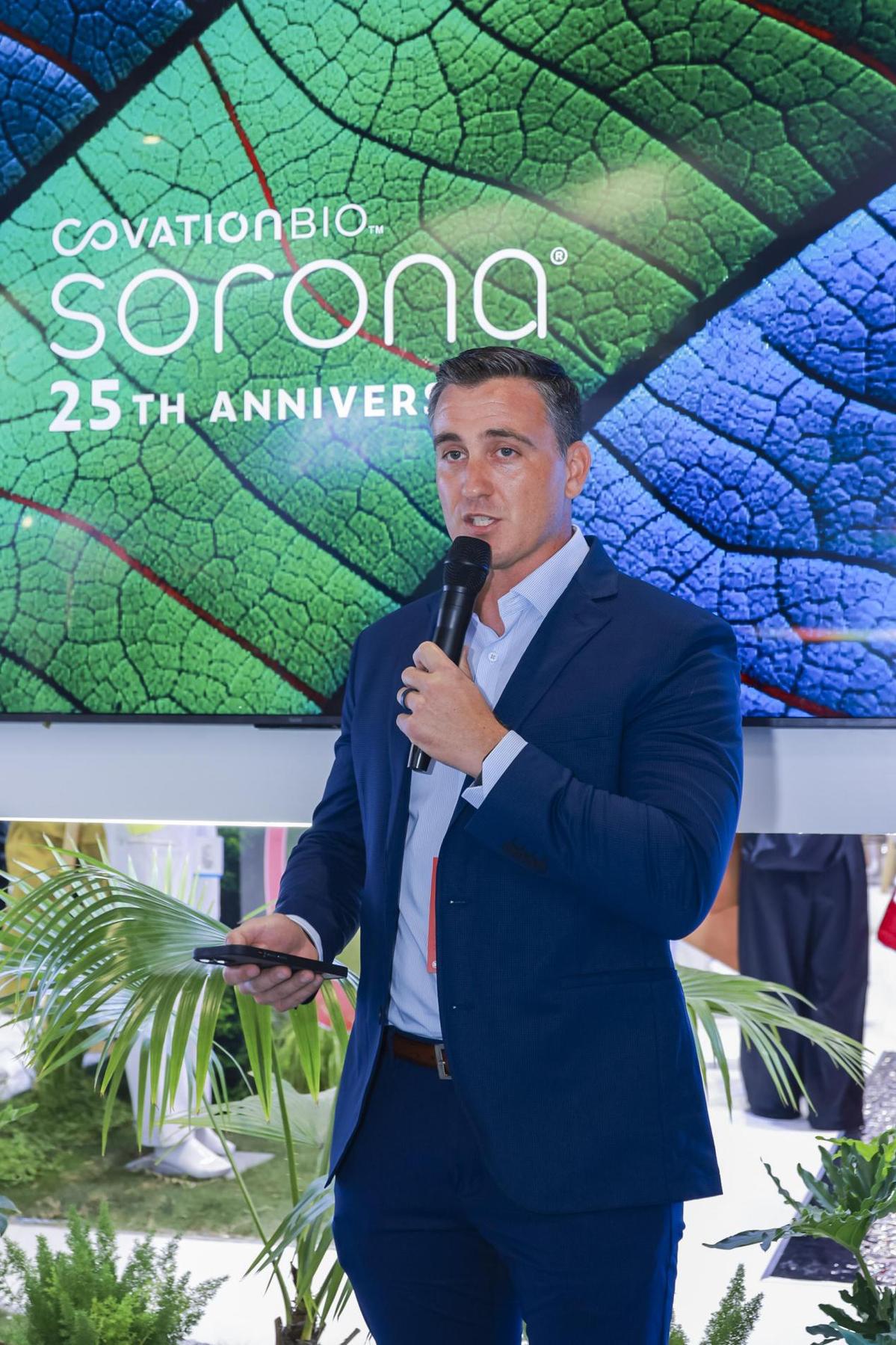Covation Biomaterials ups production to meet demand for sustainable textile solutions


The 10 billion yuan multi-phase investment to build a Bio-PTMEG manufacturing facility is on track to create one of the world's largest producers of bio-based PTMEG. With a total planned capacity of 500,000 tons per year, the facility will target the fast-growing spandex, polyurethane, and other performance material sectors.
With China's textile industry increasingly focused on sustainability and functional performance, Sorona's blend of durability, softness, and stretch has found wide appeal — from athleisure and workwear to outdoor and technical apparel, said the company.
"The Chinese market is quick to embrace both comfort and environmental responsibility, and we see that reflected in the growing demand for fabrics made with Sorona," Ackerman said. At the trade show, CovationBio released a new Life-Cycle Assessment results, confirming Sorona's industry-leading sustainability credentials. The assessment, conducted by TrueNorth Collective, found that Sorona offers 44 percent less energy and emits 170 percent less greenhouse gas emissions than producing nylon 6 from non-renewable resources, and 41 percent less greenhouse gas emissions than producing polytrimethylene terephthalate.
Launched in 2000, Sorona was the world's first commercial polytrimethylene terephthalate polymer and is being widely adopted in myriad applications, including athleisure, outdoor, workwear, carpets, and faux fur.
Sorona's strengths come from its use of bio-based propanediol, derived from industrial dent corn. This three-carbon molecule, unlike traditional two-carbon ethylene glycol used in polytrimethylene terephthalate, enables Sorona to deliver greater hand-feel and stretch without relying on spandex, opening new opportunities in both woven and knit applications.
"It's not just about being sustainable; it's about bringing real value and performance to the end user," he added.
Looking ahead, CovationBio plans further advances in both product sustainability and functionality, with new fiber technologies that add cooling or warming properties and improved odor control for textiles — all without compromising Sorona's environmental and performance benefits.
"Fashion and textiles are at a critical turning point. The next chapter will be about pushing boundaries even further with renewable chemistry and responsible innovation," Ackerman said.
wangzhuoqiong@chinadaily.com.cn




































